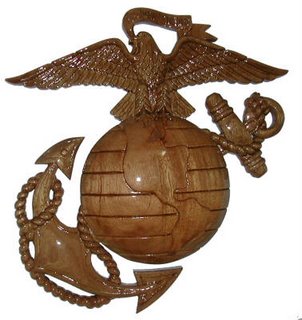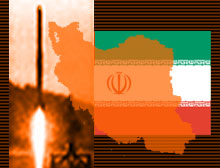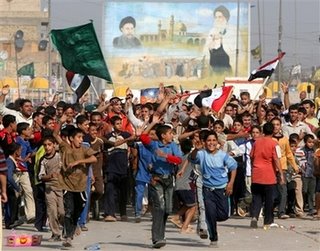Some acquaintances of mine assume that, because I served with the United States military in Iraq, that I necessarily supported the decision of the Bush administration to invade Iraq. This is not the case. I actually contemplated retirement from the military rather than supporting the invasion. Speaking with family members, friends, and co-workers I explained to them that I did not think enough evidence existed to support an invasion.
In early 2003, I was notified that my National Guard field artillery unit was being activated and sent to Iraq. Beside being a traumatic moment for me and my family, I also remember a strange feeling of calmness. My thoughts were, "I volunteered to be in the military, and I'm still in, and I've been ordered to active duty, so it doesn't matter what my political feelings are at this point."
I ended up not, as first impressions were, participating in the initial invasion of Iraq; instead my battalion served in place of a regular army battalion that did participate in the invasion.
Six months later we were back home, and again I contemplated retirement. My wife and I thought and prayed about the decision, and felt strongly that I should continue my military service.
Two years after my first active duty stint concluded, my battalion was re-called to active duty, and this time found itself in Ramadi, Iraq. Over the course of my stay, my primary goal was to give the Iraqi people not only a good impression of the United States in general, but particularly a good impression of the American military. A few of those experiences are shared as earlier posts in this web log.
In retrospect, my wife and I are both glad that we decided I should stay in the military, and we are especially glad for my service in Iraq. However, I often have wondered...
...President Ronald Reagan was and is a hero of mine. I admire his ability to stand up with optimism against the adversary of despotism. That is why the following story and commentary is so informative to me, and it makes me wonder what would have happened if we could go back and have a do-over in Iraq--something the Carter administration began, and something in whose eventual success Ronald Reagan participated.
December 13, 1981 signaled, in retrospect, the downfall of the Communist Polish government, rather than the feared failure of Solidarity and the struggle for freedom.
Janusz Reiter, Poland's current ambassador to the United States, has this to say about that event:
The United States made the right decision. President Ronald Reagan accurately perceived that Poland offered the fulcrum needed to move things forward from the so-called Yalta pattern of a divided Europe. The United States gave the Solidarity opposition the support it needed most -- moral support. By doing so the Reagan administration followed in the footsteps of President Jimmy Carter's administration, which had listened to the advice of its national security adviser, Zbigniew Brzezinski, and strongly supported earlier dissident movements.
Ambassador Reiter also says of the United States' support for the dissident movement in Poland:
American leaders at the time showed a particular sense of psychological and political intuition.
First, they perceived in what direction Poland was moving and chose to support those who would later prove to be the catalysts of political and social change.
Second, there was never a doubt that Solidarity was a movement developed from Polish tradition and experience, and that the Poles knew what was best for their country. The United States respectfully accepted this.
Third, this was a great fight for hearts and minds. To win it, the United States opened its arms, in particular to the younger generations of Poles. Thousands of them -- scientists, artists, students -- then came to the United States. Some remained here, but many returned to Poland and used their American experiences to help deal with the growing pains of a newly democratic society.
Two differences immediately jump out at the way Poland and Iraq were treated by the United States.
- The Carter and Reagan administrations chose moral support, while the Bush Administration chose invasion, occupation, and nation building. The Bush administration's rationale was that the Hussein regime could easily attack us on our own soil, and therefore we must attack them on their turf; however, Carter and Reagan could have easily made a stronger case that the Soviets were much more able to attack us here than Saddam Hussein was.
- Solidarity, prior to the United States' moral support, had a much greater presence, organization, and purpose than did the dissident movement in Iraq. Lack of separation of church and state makes a sticky mess of political disagreement in the Middle East, so it may be a bit "pie in the sky" to expect Iraq's dissidents to be as unified as were the Poles of Solidarity. Nonetheless, a much greater groundswell toward liberty existed in the Poland of 1981 than did in the Iraq of 2003.
If George W. Bush had used the same tack for Iraq as Jimmy Carter and Ronald Reagan did for Poland, would Iraq be in a better situation today? In light of recent historical events in Iraq, if America steps back militarily from Iraq, will it be possible to provide moral support for the Iraqi "dissident movement", or is it too late?
A shorter version of this post originally appeared on OneUtah.org.



























